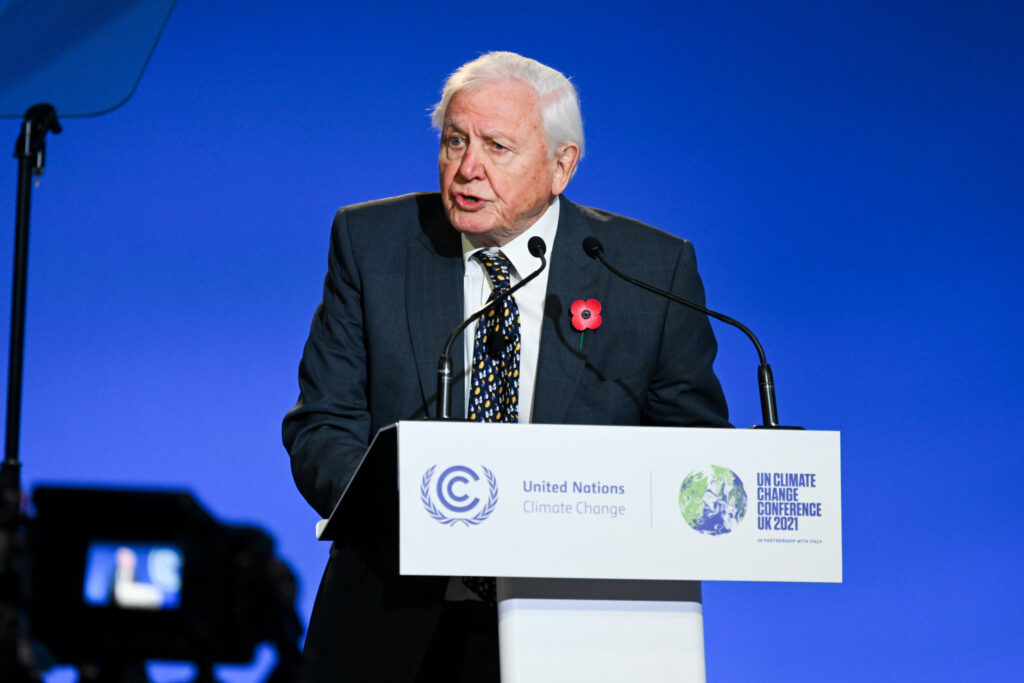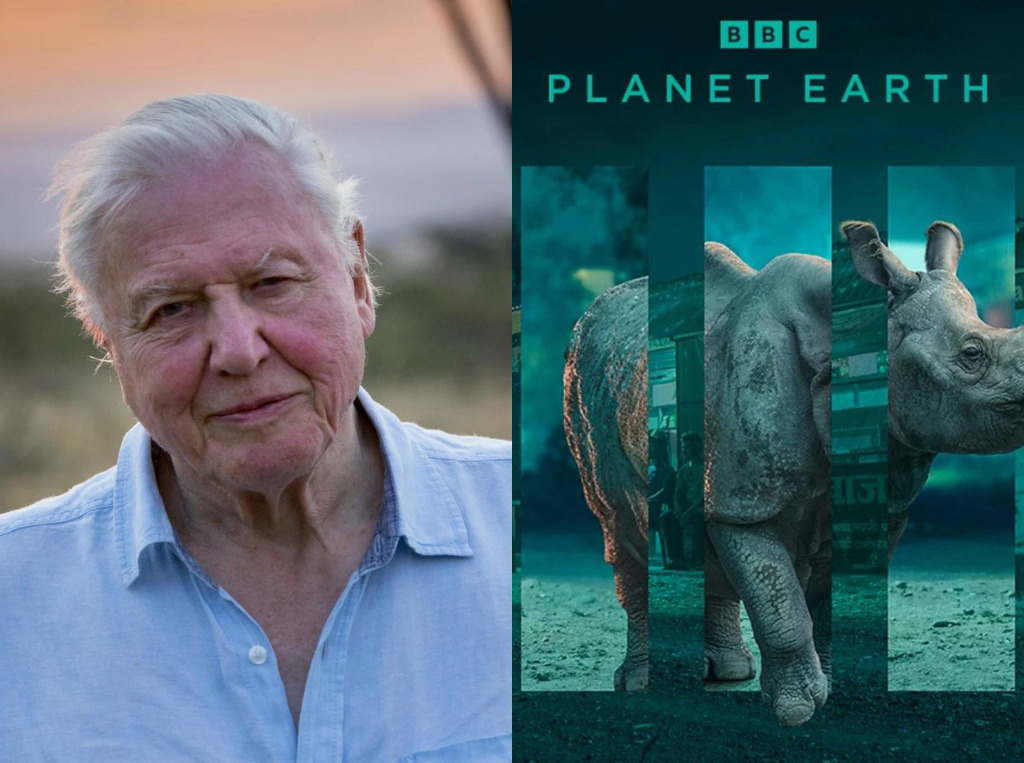Planet Earth III: David Attenborough Delivers Strongest Endorsement Yet for Vegan Diets
5 Mins Read
British naturalist and broadcaster Sir David Attenborough has given his most direct endorsement of a vegan diet in the latest episode of his BBC One series, Planet Earth III.
The longtime TV host highlighted the vast amount of land used by animal agriculture, and how freeing that up could help feed the world. Delivering a piece-to-camera in a green field surrounded by vegetables and cute video effects of blossoming produce, in his most direct on-screen assessment of the food system and livestock industry yet – and in front of millions, Attenborough said: “If we shift away from eating meat and dairy and move towards a plant-based diet, then the sun’s energy goes directly into growing our food.”
As a naturalist with possibly the most enviable filmography, Attenborough has travelled the world and warned the world about the destruction we humans are causing. His new BBC One docuseries, Planet Earth III, has been airing since October, shedding light on deforestation and biodiversity loss. The seventh and latest episode, Humans, focuses on how animals and wildlife adapt to and survive in a rapidly changing human world. And it’s when he gave his strongest message of support for plant-based diets.
What David Attenborough said about vegan diets on Planet Earth III
It’s not like the broadcaster hasn’t highlighted the issues of meat consumption before. In 2020’s A Life On Our Planet, he said: “We must radically reduce the way we farm. We must change our diet. The planet can’t support billions of meat-eaters.”
Highlighting biodiversity loss, he added: “Half of fertile land on Earth is now farmland, 70% of birds are domestic, majority chickens. There’s little left for the world. We have completely destroyed it.
“By 2080, global food production enters crisis, soils overused, weather more unpredictable… a sixth mass extinction is well underway. Our garden of Eden will be lost. I wish I wasn’t involved in this struggle. I wish I wasn’t there.”
But while his rhetoric has veered more towards human-caused destruction. But this time, he’s taken a more pragmatic, more optimistic, and yet more direct approach in an attempt to hit his point home better with viewers. On Sunday night, the 97-year-old made the aforementioned statement about the sun’s energy going into growing our food.
Expanding on that, he said: “And because that’s so much more efficient, we could still produce enough to feed us, but do so using a quarter of the land. This could free up an area the size of the United States, China, the European Union and Australia, combined – space that could then be given back to nature.”
He had prefaced this moment with various nods to the effect of livestock farming on the environment. “Currently the vast majority of agricultural land – more than 75% – is used to raise livestock and this is very inefficient,” he said.
Attenborough also said: “We rear 70 billion farm animals each year and every one of them needs feeding… Producing food for such numbers of domesticated animals is having a profound impact on the natural world.”
Honing in on the environmental aspect, the broadcaster continued: “Year after year, we clear over two million hectares of the Amazon rainforest – that’s the size of Wales. We use nearly all of it to make more space for cattle and to grow soya to feed livestock… Today, habitat destruction is the biggest problem we’ve created for wildlife around the world.”
Why this is a big deal

The Brit’s statements arguably make for a landmark moment in TV this year. It might seem unremarkable, but this is a man who has been covering the natural world and environment for 72 years now, so he knows a thing or two.
He is also one of the most universally loved figures in the UK and carries huge influence. Take this survey from 2021 that highlighted ‘the Attenborough effect’ as an example. When 2,000 Brits were asked about people their views on environmentalists, the biologist was top of the list in terms of inspiring people to be greener and make more sustainable choices, with 59% choosing him.
That Attenborough highlighted the land use aspect is significant. Research has shown that shifting to an entirely plant-based diet would cut global land use for agricultural purposes by 75%, thanks to a reduction in grazing and a smaller requirement to grow crops. This is because it takes about 100 times more land on average to produce a kcal of beef or lamb versus a vegan analogue. In fact, lamb, mutton, and beef use up the highest amount of land than any other food – over three times the next on the list, which is cheese.
And as Attenborough – an Earthshot Prize council member – alluded to, 77% of agricultural land is used for livestock (pasture grazing and animal feed), which produces only 18% of the world’s calories and 37% of its protein. The 23% of land used for crops for human consumption – plant-based food – accounts for 82% of calories and 63% of proteins.
Agriculture is also the biggest driver of deforestation – the expansion of pasture land to raise cattle is responsible for 41% of tropical deforestation. As our consumption needs increase (global meat-eating is set to grow by 14% by 2030), this will only become a bigger problem.
Are Brits paying heed to Attenborough’s words with their actions? The jury’s out. A recent government survey revealed that meat and dairy consumption are at their lowest in 49 years (when record-keeping began), but intake of fresh fruits and vegetables has dropped too (by 14% year-over-year). Cheese, meanwhile, has soared, with the UK eating more cheese per week in the last two years than any other year.
The entire world going vegan is unlikely, but even a 50% swap of meat and dairy to plant-based alternatives can bring tremendous benefits – a 31% cut in agriculture and land use emissions, a halt in deforestation, and 12% less land needed for farming – which is what Attenborough has been saying for years before last weekend’s more blatant remarks.
Will the kinder, more direct approach work? Seeing the progress (or lack thereof) on food systems change at COP28 makes it feel like it very much needs to.




